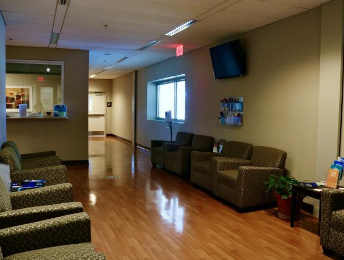Should GC offer peer counseling?

The seats are empty most of the time in the lobby of the office of GC’s counseling services
April 5, 2023
College students are no strangers to the pressure, lack of sleep, and rigorous coursework they endure during “the best four years” of their life. With increasing demands and expectations, mental health concerns for college students begin to rise as well.
The American Psychological Association (APA) reports that during the 2021-2022 school year, more than 60% of college students experienced “at least one mental health problem.”
To help combat this crisis, many schools have adopted different methods to care for their students.
Hamilton College, a private liberal arts college in Clinton, New York, has started sending its students with mental health problems to other students. The university trains close to a dozen undergraduate students a year to serve as peer counselors.
Hamilton College has clarified that this service is not a substitute for therapy, but rather an alternative resource available to students.
When talking to GC staff and students, many had optimistic insight as to what an initiative like this would look like for current and future Bobcats.
“We have actually mentioned getting student peer counselors as part of the new Quality Enhancement Plan [QEP],” said Rachel Pope, a GC alumna and university health educator.
The new QEP will focus solely on mental health and student life. Previous plans have only been housed in academic improvement.
“It definitely could be there,” Pope said. “We haven’t ironed out all of the fine details of that. I’d love to know if students would feel comfortable talking to other GC people, or if they felt like our campus is too small.”
Pope says, ideally,, there would be five to 10 students trained to promote the QEP and to be available to other students, either virtually or in person. However, it is a massive time commitment, both for faculty and interested peer counselors, with extensive, in-depth training required.
According to a survey by Higher Education Today, one out of five college students say they have participated in peer counseling, and 60% of participants found the service beneficial.
“I think it would be a good idea because sometimes, it can be scary going to somebody older who doesn’t really understand what you’re experiencing right now,” said senior Taylor Luiz, a music therapy major. “So, having students who are in your same shoes, also doing that, would be a little bit more accessible.”
Luiz also pointed out how offering group sessions could be beneficial to students by showing them they are not alone.
“Obviously, this school’s primary focus is helping the student’s well-being, but also, it might help with retaining students as well,” said Luiz. “A lot of students drop out because of mental health. If we help the students from the get-go, they’ll probably be more willing to stay in school.”
“It depends on what kind of mental health issues,” said junior Alexis Snyder, a psychology major. “If it’s something really extreme, it probably shouldn’t be a peer, because you don’t want to hurt anybody, and you don’t want to damage anybody — on either end.”
GC already offers various mental health resources for students and employees through their partner Christie Campus Health. Peer Support with Togetherall is a version of peer counseling offered to GC students that pairs students with a safe, anonymous face online to give and receive support. Additional resources are available 24/7 at no cost, such as TeleHealth, in-person and virtual counseling services and Silver Cloud.



